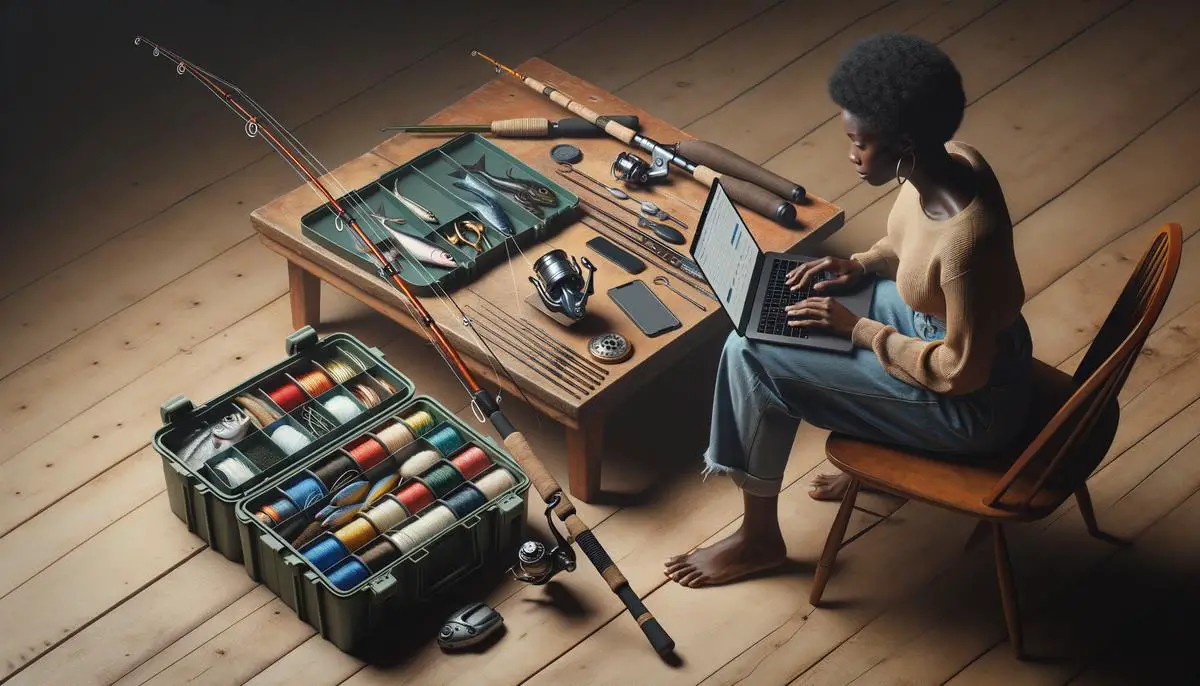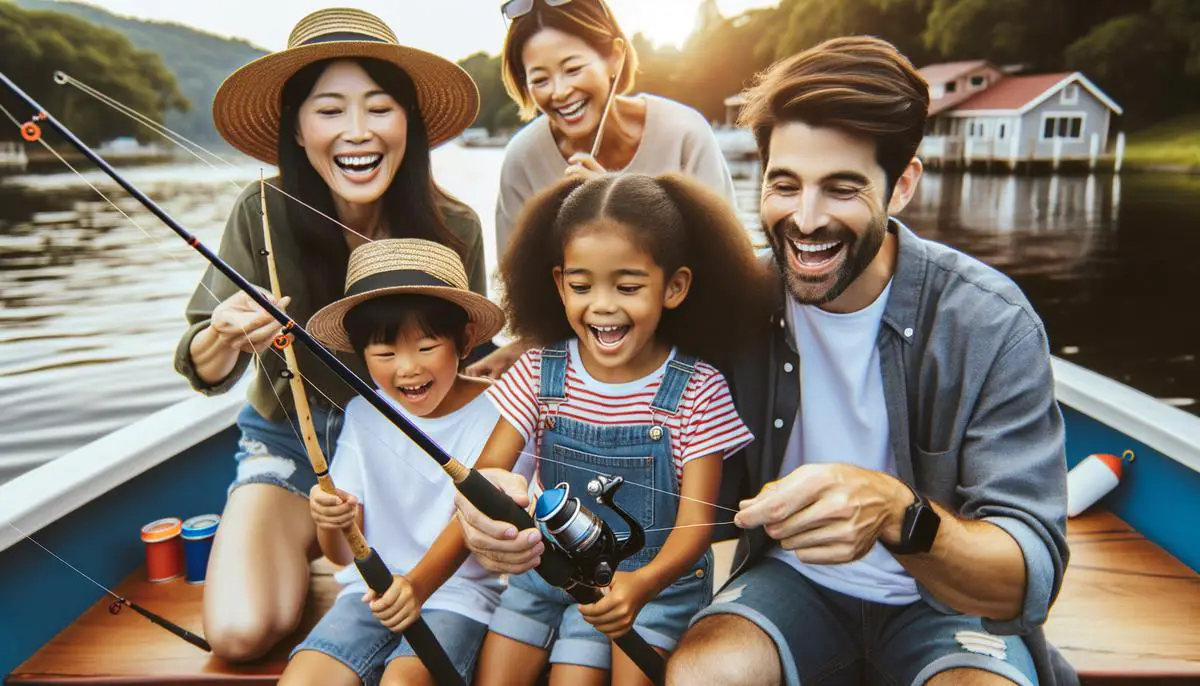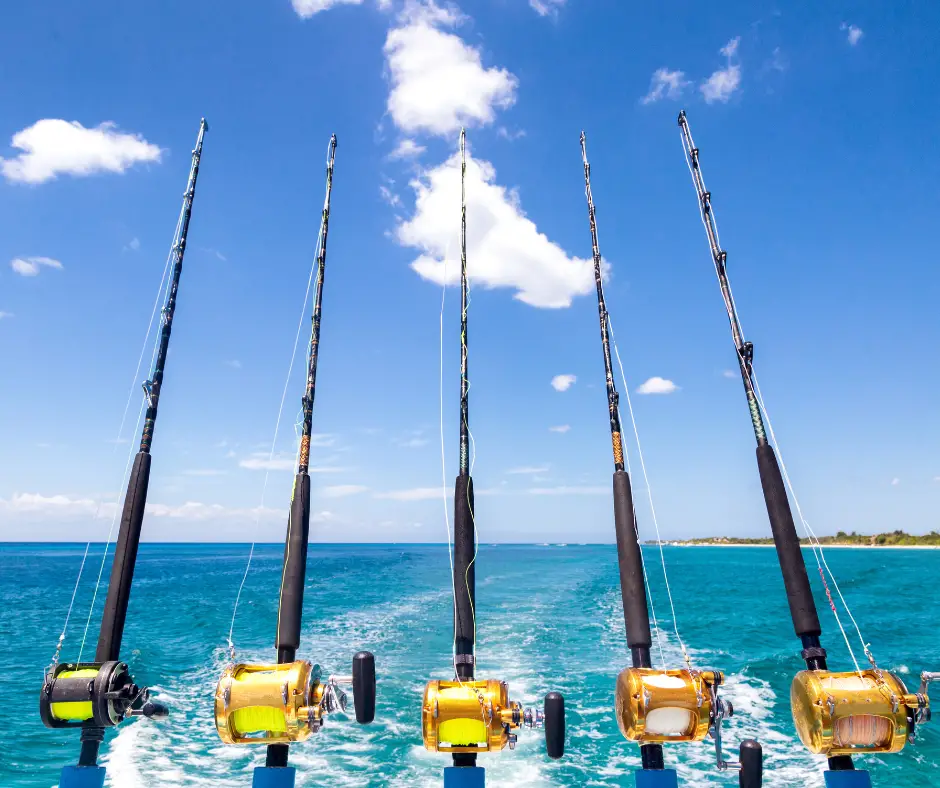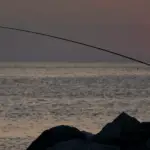Types of Deep Sea Fishing Licenses
There are various types of licenses required for deep sea fishing, and it's important to understand the differences to ensure you're following the rules. Here's an overview of the types of licenses available:
Resident and Non-Resident Licenses
Resident Licenses are for individuals who have lived in the state for a specific period, usually six months or more. For example, California charges residents $61.82 for a 365-day sport fishing license, while non-residents pay $166.89. In contrast, Florida's resident annual license costs $17, whereas non-residents pay $47 for an annual license.
Non-Resident Licenses cater to those visiting a state. Non-residents often pay higher fees than residents. For instance, in Connecticut, non-resident marine waters fishing costs $15, but Indiana's non-residents can expect to pay $55 for an inland season fishing license.
Short-Term and Long-Term Licenses
Short-Term Licenses are ideal for those planning a brief fishing trip. New York offers a non-resident 3-day license for $17. Similarly, California provides one-day ($20.26) and two-day ($31.06) sport fishing licenses, perfect for weekend anglers.
Long-Term Licenses cater to those who fish regularly throughout the year. Florida's resident five-year license costs $79, and California's lifetime fishing licenses range from $679.75 for ages 0-9 to $1,112.00 for ages 10-39.
Special Licenses for Disabilities or Seniors
Disabled Veterans and Mobility-Impaired Licenses are available in many states at reduced rates. California offers a license to disabled veterans and recovering service members for just $9.53. Florida provides a no-cost license to veterans through online verification.
Senior Licenses are often free or significantly reduced. Connecticut residents age 65 and older receive a marine waters fishing license for free but need to renew it annually. In California, low-income seniors can get a sport fishing license for $9.53, ensuring that age doesn't hinder their fishing activities.
Additional Permits and Validations
Specific Species Permits are sometimes necessary. For example, Florida requires a State Reef Fish Angler Designation at no cost for anglers targeting certain reef fish from a private vessel. Similarly, California's Recreational Crab Trap Validation costs $2.98, and an Abalone Report Card is $29.73 (currently, the fishery is closed).
Licensing for Anglers with Special Needs
Licenses for Intellectually Disabled or Blind Individuals are often no-cost, ensuring everyone has access to fishing. Connecticut issues these licenses through participating town halls, allowing custom support for individuals based on their needs.
Youth Licenses are available to encourage young anglers. Florida offers a Gold Sportsman's License for youths between 8 and 15 for $100 (valid until their 17th birthday).
Acquisition and Costs of Deep Sea Fishing Licenses
Acquiring your deep sea fishing license is easier than you might think, and it can be done through several convenient channels.
One of the most straightforward ways to obtain your fishing license is online. Most states have dedicated websites where you can purchase your licenses with just a few clicks. For instance, Florida's GoOutdoorsFlorida.com and California's CDFW License Sales Office portals allow you to select the type and duration of your license, pay online, and even print a temporary license until the official one arrives. Similarly, the New York Department of Environmental Conservation (DEC) provides the DECALS system for easy online registration for their Recreational Marine Fishing Registry.
If you prefer a more personal touch, you can visit physical locations such as town halls, sporting goods stores, or tackle shops. Connecticut residents can head to participating town halls for licenses customized to their needs, including special licenses for those who are disabled or legally blind. Big retailers like Walmart or local tackle shops are typically authorized agents where you can purchase and renew fishing licenses in person. This is a great option if you have specific questions or need advice on local fishing spots and regulations.
For those who might be short on time or prefer not to go through the online process, purchasing your license over the phone is also an option. Many states offer a phone service where you can use a credit card to buy your fishing license. You'll often receive a confirmation number that serves as a temporary permit until your physical license arrives. It's a fantastic option for last-minute planners who decide to hit the waters on a whim.
The cost of a deep sea fishing license can vary based on several factors, including your residency status and the length of the license validity. Residents typically enjoy lower rates compared to non-residents. Short-term licenses are perfect for those planning short fishing trips. These tend to be cheaper and more flexible. Long-term licenses are ideal for avid anglers who hit the waters frequently throughout the year. Specialty licenses are available for seniors, disabled veterans, and individuals with specific needs. These licenses often come at a reduced rate or no cost at all.
Acquiring your deep sea fishing license ensures compliance with state regulations and supports local conservation and educational efforts, making it a win-win for all involved. So gear up, follow the guidelines, and embark on your deep-sea adventure with the confidence that you've got all the legalities sorted!

Regulations and Legal Requirements
When you're gearing up for a deep sea fishing adventure, understanding the regulations and legal requirements is essential to a smooth and enjoyable experience. Adhering to these protocols keeps the thrill alive and ensures the sustainability of our marine environments. Here's a thorough look at the key regulations and legal requirements you'll encounter.
Seasonal Restrictions
Most states impose seasonal restrictions to protect fish populations during critical periods such as spawning. For instance, the International Pacific Halibut Commission (IPHC) specifies that the recreational (sport) fishing season for Pacific halibut in Alaska's waters runs from February 1 to December 31, providing anglers a generous window while still safeguarding fish stocks. Similarly, other species, like certain reef fish in Florida, have defined seasons that anglers must respect to avoid penalties.
Catch Limits
Catch limits are another crucial regulation set to maintain fish populations and ensure future generations can also enjoy deep sea fishing. For example, in Alaska's waters for Pacific halibut, the daily bag limit is typically two per person, with additional restrictions for guided anglers, like a one-fish-per-day limit in certain areas and size restrictions to ensure balanced harvesting. Florida's regulations for popular species such as the snapper-grouper complex often include specific limits on both the number and size of fish that can be retained.
Equipment Rules
The type and amount of equipment you use can also fall under regulation. Some areas have rules regarding the kind of bait or tackle permissible. In Alaska, for instance, recreational anglers can use a single line with no more than two hooks or a spear for halibut fishing. Similarly, to catch crabs in California, anglers need a separate Recreational Crab Trap Validation in addition to their primary fishing license.
Location-Specific Rules
Every fishing location has its specific set of rules. In California, fishing for lobster requires a spiny lobster report card, and fishing in the Klamath, Trinity, and Smith River systems necessitates a unique salmon report card. Florida demands an additional State Reef Fish Angler Designation for reef fish caught from private vessels, emphasizing the importance of knowing the locale-specific regulations before you cast your line.
Following these regulations is about more than just adhering to the law – it's about being a conscientious steward of marine resources. Adhering to these guidelines helps avoid hefty fines, legal trouble, and possible confiscation of equipment or catch. Infractions like exceeding bag limits or fishing out of season can result in significant penalties, impacting both your wallet and future fishing opportunities.
Comprehending and obeying the legal requirements might seem challenging at first, but it's all part of the exciting journey that is deep sea fishing. Familiarize yourself with your local fishing regulations, respect seasonal and equipment rules, and always strive to fish responsibly. This way, you can relish the thrill of the catch, the beauty of the open sea, and the satisfaction of knowing you're contributing to a sustainable future for all anglers.
Free Fishing Days and Special Permits
Free fishing days are an excellent opportunity for new anglers to explore deep sea fishing without the need for a license. These designated days allow everyone to fish in a state's waters license-free, encouraging participation and fostering a love for the sport. For instance, in Connecticut, upcoming designated free fishing days include:
- Saturday, May 11, 2024
- Sunday, June 16, 2024
On these days, no fishing license is required, making it a perfect occasion for families and friends to enjoy a fishing trip together.
On Illinois Free Fishing Day, which typically falls over a weekend in June, residents and non-residents alike can hit the waters without worrying about obtaining a fishing license. New York also offers free fishing weekends, providing an ideal opportunity for both locals and visitors to experience the state's diverse fishing spots.
To broaden accessibility even further, some states offer temporary free permits on specific occasions. For example, Connecticut requires anglers to get a free 1-day license from the licensing system for Free Fishing License Days, which are also designated in August. The free 1-day license becomes available three weeks before the date, ensuring anglers have ample time to prepare.
Special permits for unique activities, such as fishing tournaments, personal use, and conservation-related expeditions, also play a significant role in the deep sea fishing community. Organizing or participating in a fishing tournament often necessitates obtaining a specific permit. California requires a Marine Fishing Tournament/Derby Registration for such events, which is vital for maintaining order and ensuring the events do not negatively impact local fish populations.
Personal use permits are customized for those who wish to catch species for non-commercial purposes. For instance, in Connecticut, a Personal Use Lobster License allows individuals to take lobsters for personal use with up to 10 pots or SCUBA diving. This license costs $60, and a similar license is available for using a single gillnet to catch menhaden, priced at $100.
Conservation-related fishing expeditions frequently require special permits due to their nature and impact on the environment. For example, a Scientific Collector's Permit might be necessary for research purposes, allowing the temporary collection of marine fish and invertebrates for educational or research projects. In Connecticut, these permits help facilitate data collection crucial for monitoring fish populations and overall marine health. Similarly, Florida's State Reef Fish Survey, which designates certain reef fish anglers need to register, aids in the assessment and management of reef fish stocks.
Free fishing days and special permits make deep sea fishing accessible, fun, and sustainable. They provide valuable opportunities for new and experienced anglers to enjoy the sport while contributing to conservation and education efforts. So, gear up, check your state's designated free fishing days or required permits, and dive into the thrilling world of deep sea fishing with confidence and responsibility.

Remember, having the right deep sea fishing license isn't just about following regulations—it's about contributing to conservation efforts and ensuring that everyone can enjoy this activity for years to come. So, get your gear ready, check your local requirements, and head out with confidence knowing you're doing your part.
- California Department of Fish and Wildlife. 2023 California Ocean Sport Fishing Regulations. California Department of Fish and Wildlife; 2023.
- Florida Fish and Wildlife Conservation Commission. Recreational Saltwater Fishing Regulations. Florida Fish and Wildlife Conservation Commission; 2023.
- Connecticut Department of Energy and Environmental Protection. Connecticut Fishing: Licenses & Permits. Connecticut Department of Energy and Environmental Protection; 2023.
- National Oceanic and Atmospheric Administration. Atlantic Highly Migratory Species Fishery Management Plan. National Oceanic and Atmospheric Administration; 2022.
- Alaska Department of Fish and Game. Sport Fishing Regulations. Alaska Department of Fish and Game; 2023.



Welcome to our blog!